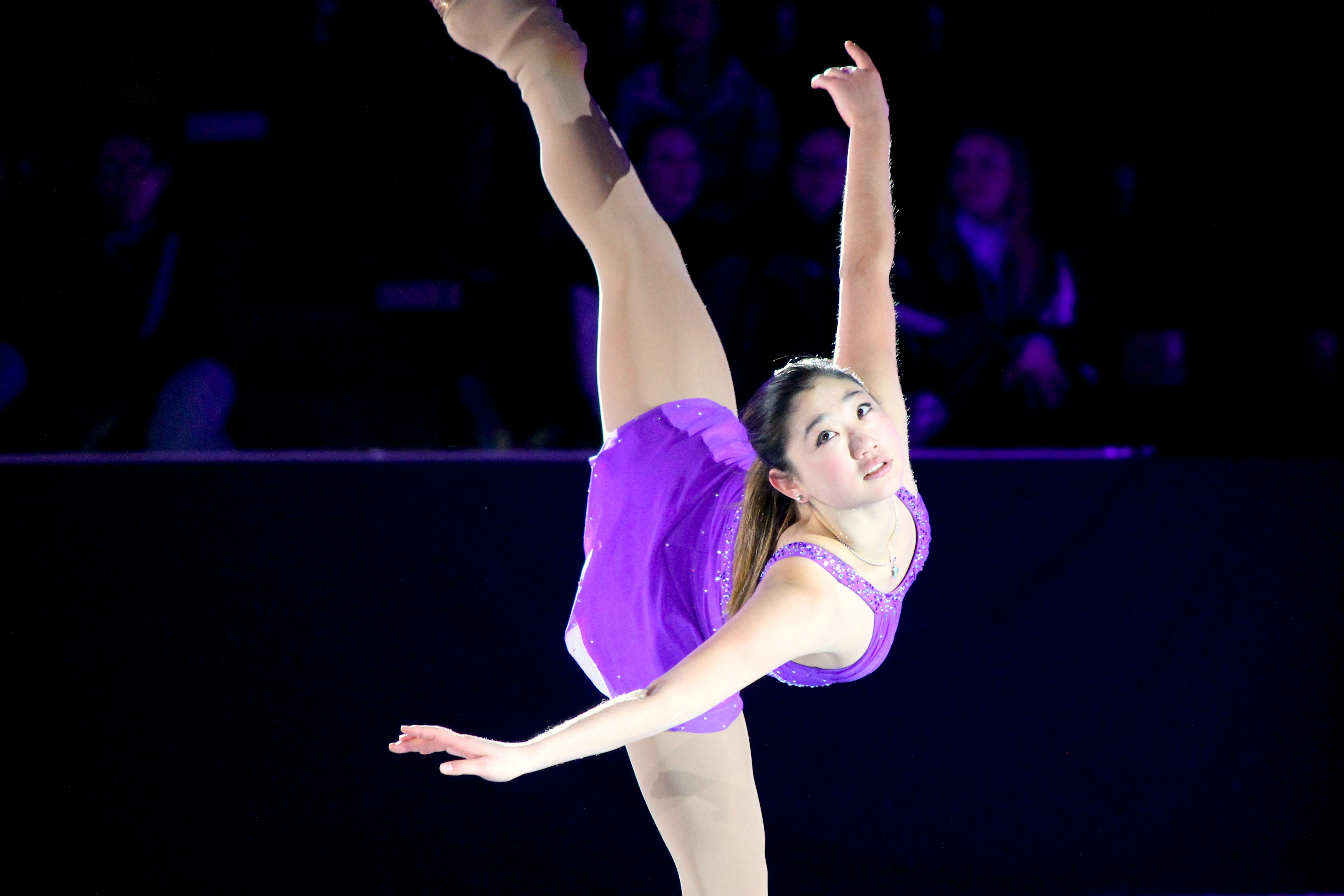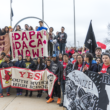The Olympics have come to a close, and in their wake I’ve been thinking about a stubborn phenomenon that was illustrated most recently by the flak a New York Times columnist named Bari Weiss received after tweeting: “Immigrants get the job done,” together with a picture of Mirai Nagasu, the U.S. ice skater who won a gold medal. Many asked: What do you mean, immigrant? She’s an American.
Weiss defended herself by observing that Nagasu’s parents are immigrants. Well, if the standard at the Times is to identify you by your last immigrant relation, then we should take into consideration the immigrant parents and forebears of a lot of our newsmakers, most notably those presently in the White House. We should recognize Trump’s German and Scottish immigrant background, along with that of his Yugoslavian (now Slovenian) immigrant wife and former–Soviet Bloc Czechoslovakian-Scottish-German-immigrant sons and daughter. And how about the Belarusian-Jewish son-in-law, whose family escaped the Holocaust? When you see things the Weiss way (who I’m assuming, by the name, is a German-American immigrant), I think it’s strange that the Times doesn’t question Trump’s “American” bona fides or for that matter his America First policy, with its demands to close the doors on “immigrants,” since his presidency is clearly an example of the rise of the recent immigrant. Rather than hide it, as if it were something to be ashamed of, shouldn’t the White House celebrate how wonderfully open and generous America has been to his immigrant family?
Charles Park, an associate professor of English at Berkshire Community College, sent me a message recently, noting: “This [the Nagasu reference] is reminiscent of the controversy in 1998 when Tara Lipinski beat Michelle Kwan, and MSNBC wrote “American Beats Out Kwan,” despite the fact that Kwan was born and raised in the United States. Perhaps the belief was that Tara had no ethnic roots. She and her relatives were spontaneously generated from this continent.
The “foreign” ice skater name-calling habit started even earlier, with Kristi Yamaguchi. For years, the news media identified Kristi, a two-time world champion figure skater and winner of the 1992 Olympic gold medal, as the “Japanese” ice skater. My Austrian, Jewish brother-in-law remembers her saying once, “They keep calling me Japanese. I don’t mind it, but my family has been in the U.S. since the 1800s.”
If identifying ethnicity is relevant then maybe we should “count” all ethnicities and religious groups, not just some.
In another sphere of influence, an example of a Times headline about Asians that uses an anonymous and foreign “they” shows this practice is definitely not a thing of the past. Here’s one from February 2018: “SEC Blocks Chinese Takeover of Chicago Stock Exchange.” “Chinese” is at best a bit vague. Do they mean the Chinese government? A Chinese company? The British Chinese? American Chinese? Singaporean Chinese, or Chinese from Taiwan? Or do they mean anyone with Chinese ancestry?
It’s not dissimilar to how Japan and the Japanese were identified in the 1980s (and pretty much still are today). This Times headline dates from November 1989: “Japan Buys the Center of New York.” What do you think they mean by Japan? The Japanese government? A Japanese company? The Japanese people? It’s so vague, but everyone seems to know what it means. So if Japan bought the center, who owns the other parts?
Do we know, for example, that Shell and Unilever are Dutch? Maybe we should?
Increasingly, it’s hard to imagine writing something like this about any group, even Muslims. We have to consider that they might be Americans, too. We don’t do this with Germans, Catholics, Jews, the Irish, Italian, Brits, the Dutch, the Spanish, the French, not even African-Americans anymore. Many Mexicans however are still Mexican, no matter how long they have been here, as are Native Americans and anyone Asian.
Personally, I think it’s fine if the media thinks it’s news and it’s important, but if identifying ethnicity is relevant then maybe we should “count” all ethnicities and religious groups, not just some. For example, why don’t we say there are 15 German-Americans on the ski team? (I have no idea, by the way). Or how about identifying how many serial killers are white or Christian? Or what is the ethnicity of the owners of gun-manufacturing companies … Protestants? Or pharmaceuticals … Swiss? The ethnicity of spies … Brits? And are rapists really predominantly Mexican? And how about the ethnic and religious makeup of the Senate? The House? Are there a lot of Asians? I don’t know, but I’m sure if there were, we would know about it, as this headline in a news summary from PRI’s GlobalPost, The Scan, announced on February 12, 2018: “Half of Team USA’s figure skaters are Asian American, a record for the event.”
Going back to the president of the United States, Mr. Trump is the first German American to become President since Eisenhower in the 1950s. So rather than Mr. Trump’s “Americanness,” perhaps we should be appreciating the recent achievements of people of German ethnicity, by noting that a German-American has managed to become president of the United States for the second time in this country’s history.
From my experience, what kind of American you are only seems to matter some of the time for some people and some organizations, but if you’re Asian, it’s mostly all of the time.
And I have skin in this game as well. I’m an American of Japanese ancestry. I go to London, I open my mouth, and they say, “You’re an American.” Tokyo: “You’re an American.” I was recently in Jaipur…. “You’re an American.” I come back to America, and they say: “You’re Japanese.” I don’t think the matter of one’s ethnic origin is anything to be ashamed of, but the question I have is, when do Asians stop being “immigrants” and become just another American … like Bari, or Donald, or me?
Setsuko Winchester is a ceramic artist, photographer, and former journalist at NPR. Her conceptual art work Freedom From Fear/Yellow Bowl Project asks the question “Who’s an American?” and deals with the forced removal and mass imprisonment of Americans of Japanese ethnicity during WWII. You can see her project at yellowbowlproject.com.







0 Comments